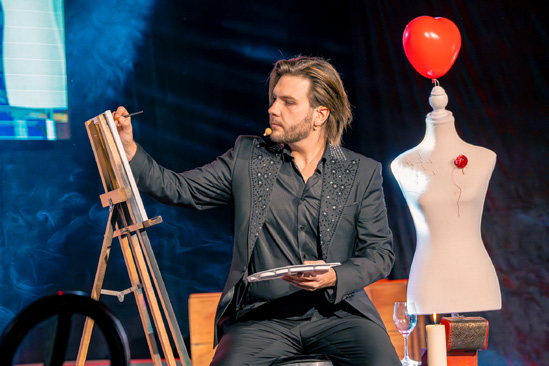
It was a crushing blow, but never bend, never give in. Instead of folding, my team and I scrambled for a new concept. After hours of brainstorming, and abandoning the usual magician themes of porn, my dead grandfather, the lack of snow in my life, and our obsession with cutting and restoring rope (we don’t kink shame in my show) we landed on something classic: Alice in Wonderland. Why Alice? Lewis Carroll’s story is public domain, I’m not paying for squat, we all paid enough at the magic shop —and more importantly, because its themes of curiosity, transformation, and embracing the bizarre spoke to me on a deeply personal level.
Weeks immersing myself in Carroll’s world, the more I read, the more it felt like destiny. I took years of unproduced effects and ideas that had been simmering in my brain and stitched them into a completely original show, Alex in Wonderland.
Photo by @antonyphoto
Building the largest dinner show in Quebec’s history in four months wasn’t magic—it was madness. And I couldn't do it without my 3 amazing partners. With more than 5000 spectators in 4 different cities, managing a team of 45 people, working 16-hour days, and producing every promo video and marketing photo myself wasn’t optional—it was survival. It was also cost effective and a type A personality.
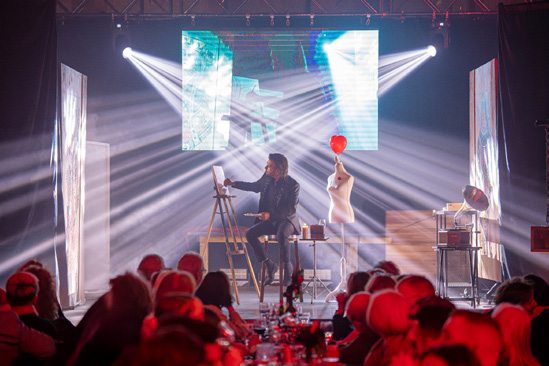
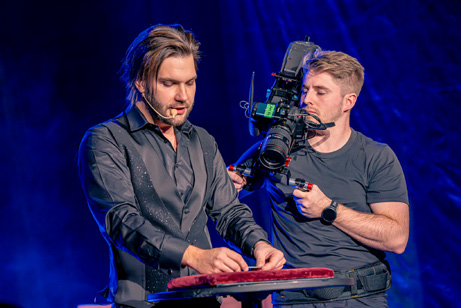
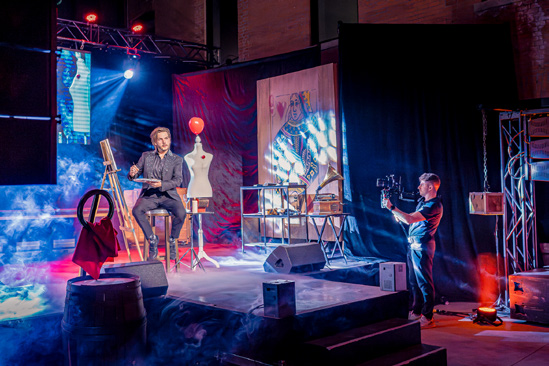
One cannot be a magician without raging ego and violent insecurity, but I digress….The goal wasn’t just to fill seats—it was to fill hearts. I wanted my audience to cry, laugh, react, and feel something deep inside as they followed the stories I told. Through every illusions, I stayed true to myself, sharing relatable stories from my life. From heartbreak and rebellion to moments of triumph, the show was as much about connection as it was about spectacle. I wanted people to leave not just entertained, but moved— thinking about their own lives in ways they hadn’t before. That’s what real theatre does, and a trick after trick magic show CANNOT and NEVER will.
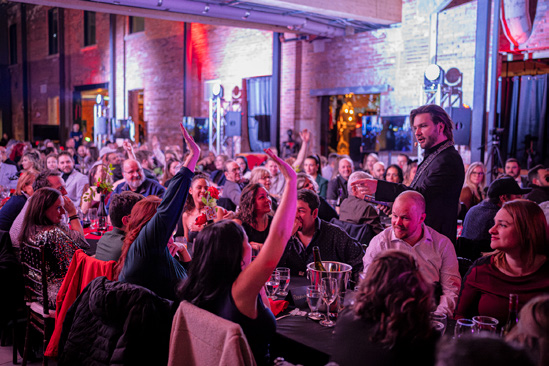
“Do something worth remembering.
-Elvis Presley
13
FEBRUARY | 2025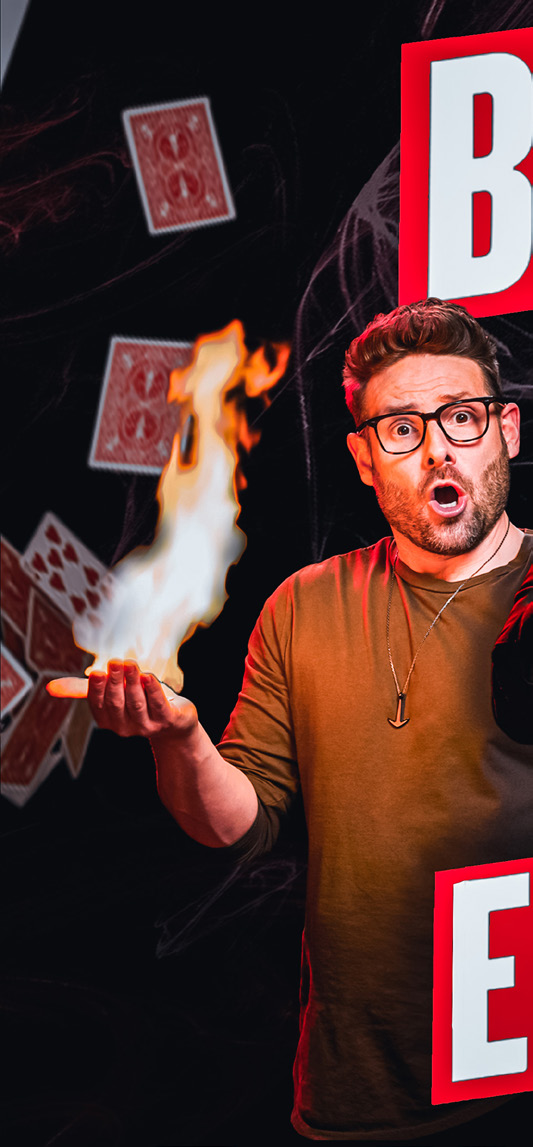
Here’s the takeaways on building a tv show, and believe me, the big take away isn’t money.
Landing an international TV show is rare. Having it picked up by Netflix? That’s a once-in-a-lifetime kind of magic. A rollercoaster of creativity, resilience, and moments of heartbreak the path to Big Trick Energy was anything but smooth.
When the four of us Myself, Wes Barker, Eric Leclerc, Chris Ramsay, and set out to create the show, we knew we didn’t want to follow the traditional magic playbook . We felt out of place in the magic community, wanted to create something entirely different, and leverage us for the outcasts we are. Four professional idiots with chaotic lives, pulling pranks on people (and each other), and showcasing magic with a lot of booze and laughs thrown in. Not your typical polished street magic special. Too much of that in magic currently, some magician on the street with elastics and a gimmicked pack of cards doing tricks no one cares about to people who aren’t interested. Not something I wanted to bring to TV that wasn’t lost in a sea of mediocrity and lame magic/magicians.
The journey started with relentless brainstorming sessions—four-hour meetings every day for two months ( brainstorming is a Canadian cocktail, no art is created without it ). We needed the idea to pitch to the network, something so bold it couldn’t be ignored. When I finally pitched an idea I’d been holding onto since I was 16: bending a car with my mind. My friends laughed at me—they always did—but I stuck with it. And… That idea ended up selling the show.

14
FEBRUARY | 2025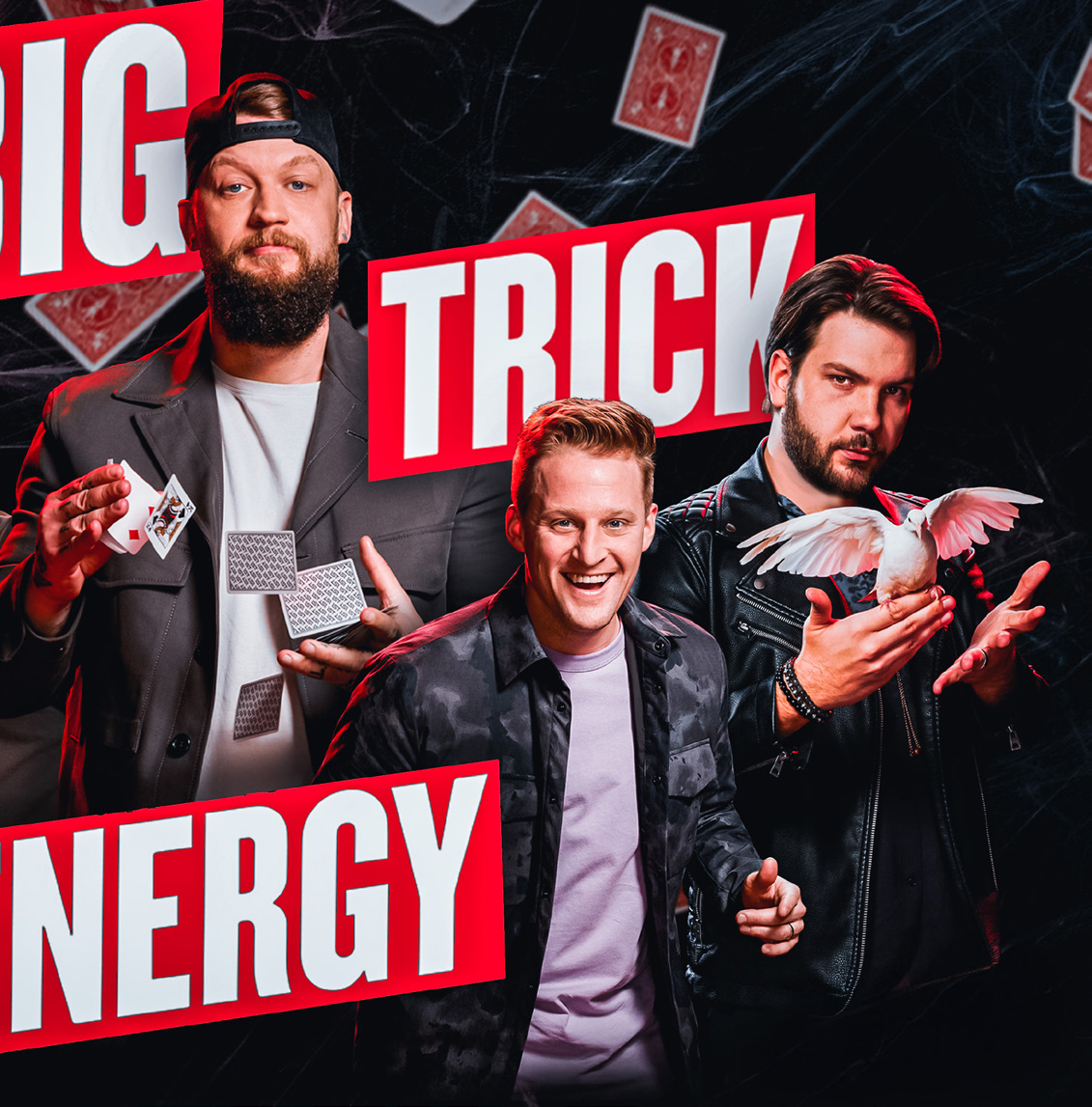

When the final edits came in, we hardly recognized the show we had poured our hearts into. The network turned us into a product, shaping and molding our raw, unfiltered magic into something safe and scripted. What was supposed to be an unscripted magic show became a “reality show ” with manufactured narratives.
Filming Big Trick Energy was a whirlwind. Eight-hour shooting days stretched into sleepless nights, parties in hotel rooms, where we’d create five to ten new effects to film the next morning. It was exhausting, but we were exhilarated. Every night, we’d replay the day ’s footage, hyped about what we had accomplished and how we were breaking the mold of what magic could be.
They even created fake storylines, like having us “pick up Wes at his house” when he didn’t live in that city. Instead, they rented a house and told us to pretend it was his. That moment shattered something in all of us. The realization that our vision had been hijacked. We should have rented the first lady of magic’s house, at least there would be a
Hollywood had its own ideas and people who know nothing about the art or medium come to change it for metrics that have nothing to do with the work. That's the reality of being an artist in a television medium.
15
FEBRUARY | 2025